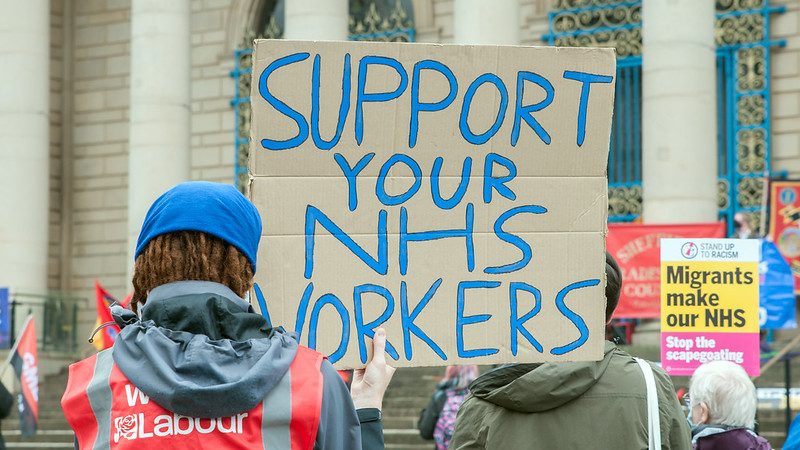‘A government that has presided over 13 years of failure in our public services is now seeking to scapegoat the NHS staff and ambulance workers who do so much to care for the people of our country.’

As a fresh wave of strikes in January get underway, and the fallout over pay and conditions continues, the government has taken the desperate step of bringing forward new anti-strike laws.
The legislation, which the government plans to enforce in coming weeks, will reportedly enable employers in education, ambulance, health, fire, rail and nuclear commissions, to sue unions and sack staff if minimum levels of service fail to be met.
Treading with caution over potential legal action, government sources have said that proposals in the original bill which were drawn up by former business secretary Jacob Rees-Mogg, would be abandoned.
This week’s anti-strike legislation announcement was met with fury among unions.
The GMB described the bill as ‘scapegoating NHS workers.’
Gary Smith, general secretary of GMB, said: “A government that has presided over 13 years of failure in our public services is now seeking to scapegoat the NHS staff and ambulance workers who do so much to care for the people of our country.
Smith continued that the attacking NHS workers’ fundamental right to take industrial action will “alienate them ever further and do nothing to help patients and the public.”
“We are always ready to discuss our members’ pay but the government is refusing to talk about problems as they exist now, instead they want to kick the can down the road.”
NHS Pay Review Body
The union leader also called into question the integrity of the NHS Pay Review Body (PRB).
In late December, health secretary Steve Barclay defended the pay offer made to nurses in England, noting that it was based on recommendations by the ‘independent’ PRB. However, the claims were questioned, with the Trade Union Congress (TUC) saying the body is unable to act with full independence, because the government sets the upper limits on what they can recommend.
Gary Smith says the process needs reforming.
“There are huge questions over the NHS Pay Review Body, as ministers’ actions have consistently undermined its independence. The process needs real reform, and our members need a much stronger commitment than we heard today,” said Smith.
In July 2022, the government accepted the NHS PRB’s recommendation to give all NHS workers a pay rise of around £1,400 in 2022, equating to an average 4 percent rise for nurses.
The Royal College of Nurses (RCN) says it wants the government to “rethink” the offer and is asking for a pay rise of 5 percent above the RPI rate of inflation – which, as of late December 2022, equated to around 19 percent.
The government says it will wait until the NHS PRB makes its next recommendation in 2023.
Gabrielle Pickard-Whitehead is a contributing editor to Left Foot Forward
Image credit – Creative Commons – Tim Dennell
To reach hundreds of thousands of new readers we need to grow our donor base substantially.
That's why in 2024, we are seeking to generate 150 additional regular donors to support Left Foot Forward's work.
We still need another 117 people to donate to hit the target. You can help. Donate today.



